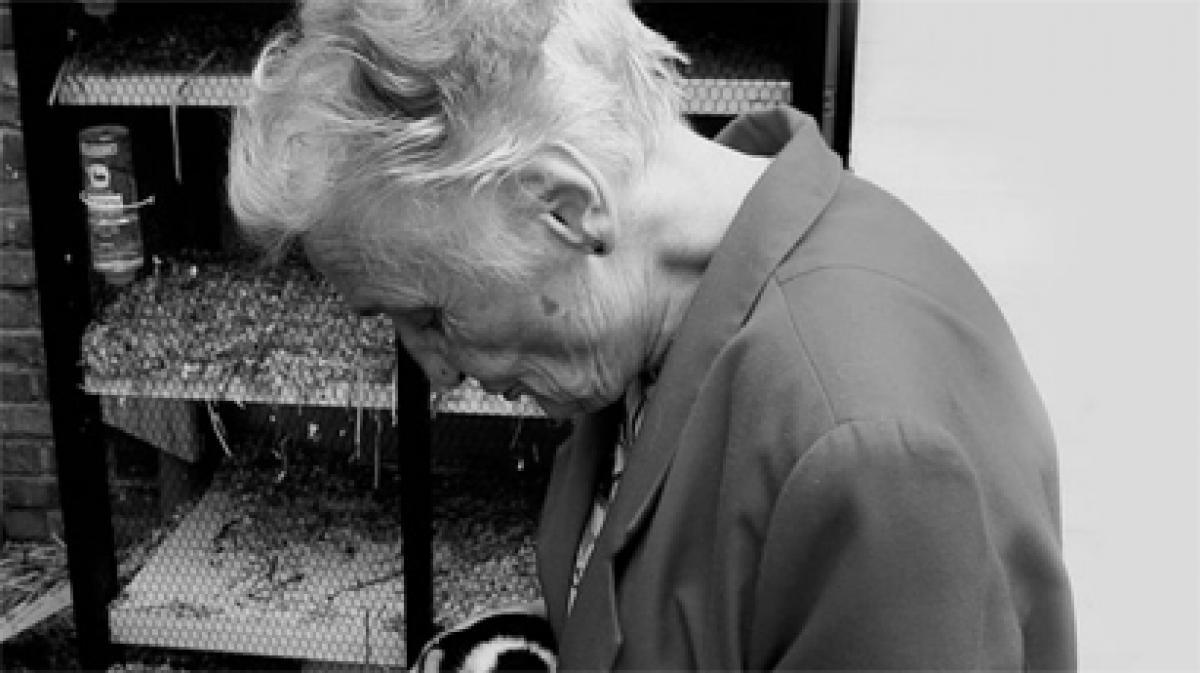Live
- National Birds Day: The vital role of birds in our ecosystem
- Aramghar-Zoo Park flyover to be thrown open to public today
- Punetha named in the list of 50 great persons
- CM to unveil ‘Swarna Kuppam Vision 2029’ in Kuppam today
- Uttarakhand Samaj Meets Governor Jishnu Dev Varma to Launch Temple Foundation Stone Event
- North Andhra was gravely neglected by YSRCP: Lokesh
- Follow time slot for smooth darshan: TTD to devotees
- Dr. Sadguru Dayanidhi Meets Governor Jishnu Dev Varma at Raj Bhavan, Hyderabad
- Ganja, mobile phones traced in Central Jail
- An inspiring journey of an innovative teacher
Just In

Patients who have a diagnosis of “frailty” before surgery are more likely to die in the following year, especially soon after joint replacement, according to a new study.
Patients who have a diagnosis of “frailty” before surgery are more likely to die in the following year, especially soon after joint replacement, according to a new study.
“This is important for people who are starting to slow down, not as sharp cognitively, and have complicated medical issues,” said lead author Dr. Daniel I. McIsaac of the University of Ottawa in Ontario, Canada.
“Every patient goes through risks and benefits deliberations before surgery,” and frailty should be part of that discussion, he told Reuters Health by phone. Researchers studied data on more than 200,000 patients age 65 or older who underwent a scheduled major noncardiac surgery between 2002 and 2012 in Ontario.
The researchers used health records from the previous two years to define the patients as “frail” or “not frail” using a diagnostic instrument that takes into account 12 clusters of other conditions, like falls, low cognitive scores and poor global function.
About 3 percent of the 200,000 patients who underwent surgery were frail, based on the diagnoses indicator. These patients were an average age of 77 while nonfrail patients were on average 74. Frail patients more often had high blood pressure and had been hospitalized in the previous year.
Within a year of surgery, almost 14 percent of frail patients had died, compared to only about five percent of others. After accounting for sociodemographic differences and surgical details, frail patients were still more than twice as likely to die as those who were not frail before surgery.
The increased risk of death was largest for younger patients, in the days directly following surgery and particularly for total joint replacement surgery, more so than for other surgeries like arterial bypass or liver resection, the authors reported in JAMA Surgery.
“There were significantly less frail patients undergoing operations compared to the population and these patients died very early after their operation within the first two to three days,” said Dr. Jason M. Johanning of the Nebraska Western Iowa VA Medical Center in Omaha, who coauthored a commentary on the results.
Frailty increases the risk of death, complications, longer hospital stay and discharge to a nursing facility, but does not exclude anyone from a particular operation, Johanning told Reuters Health by email.
“Rather it gives the operative team the ability to have an open and frank discussion with the patient about their goals of care and what to expect and how to proceed when complications occur postoperatively,” he said.
The American College of Surgeons in connection with the John A. Hartford Foundation is designing a program to address these system issues, he said.
“Before surgery, people should be identified as frail or not,” McIsaac said. But in the real world, there is no consistent approach, and no one has identified which is the best tool to use before surgery to identify frailty, he said.
In theory it could be diagnosed by a primary care provider, surgeon or anesthesiologist, he said. About 10 percent of people at age 65 are frail, which increases over time to half of people age 80 or 85.
“It’s not a necessary part of aging,” McIsaac said. “Getting in front of the curve involves making choices earlier in life,” and even after frailty has been diagnosed there are steps to decrease it, like exercise therapy, he said.
Frail patients have their own unique set of complex medical needs and we need to start looking at what we can to improve their flow through the healthcare setting,” he said. Having special wards in hospitals dedicated to these kinds of patients would lead to better long-term outcomes, he said.
“We can systematically tackle it now for the first time,” he said. “Studies like ours and those like it highlight the fact that there’s a problem and (should motivate others) to address it and get better outcomes.”

© 2024 Hyderabad Media House Limited/The Hans India. All rights reserved. Powered by hocalwire.com







